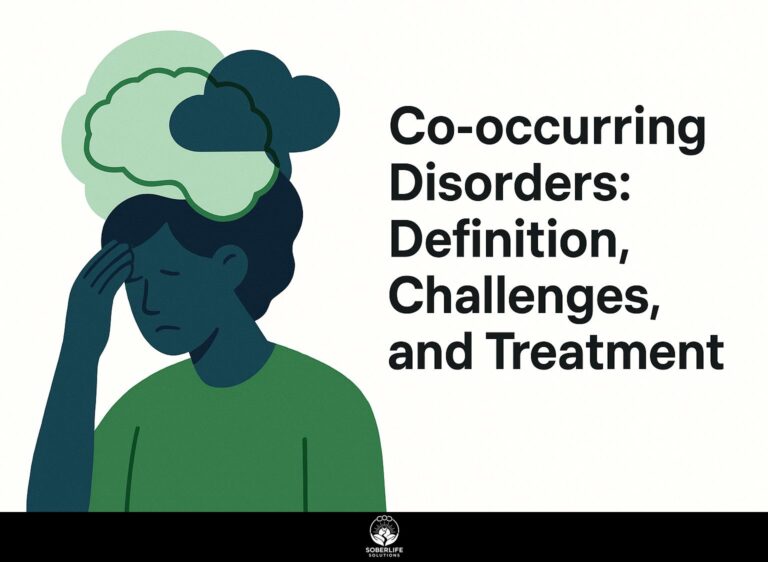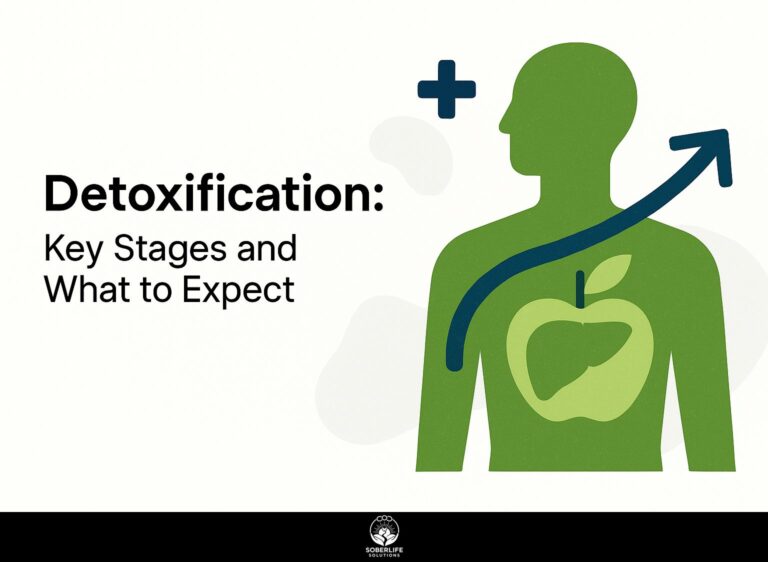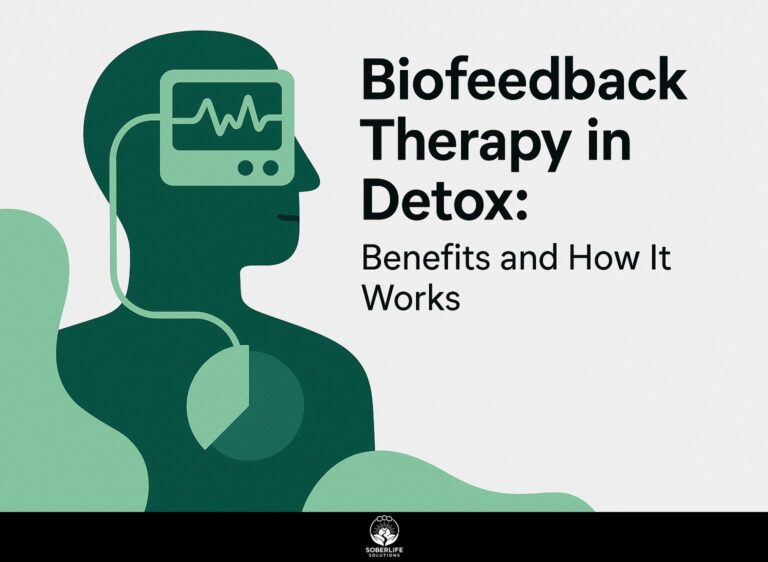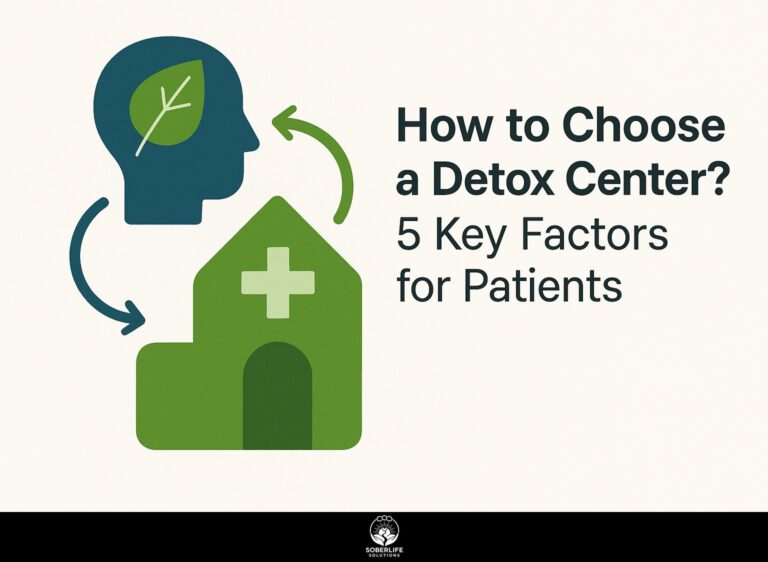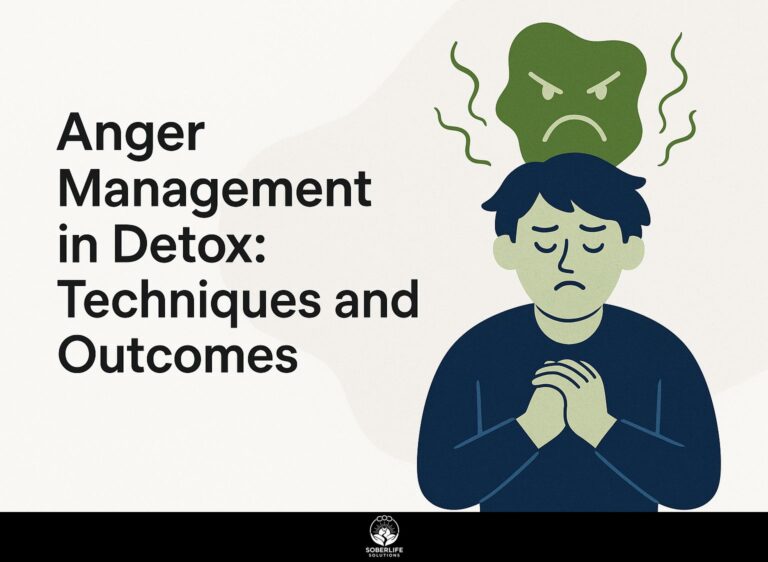Detox Centers: Yoga Therapy Benefits and Holistic Healing
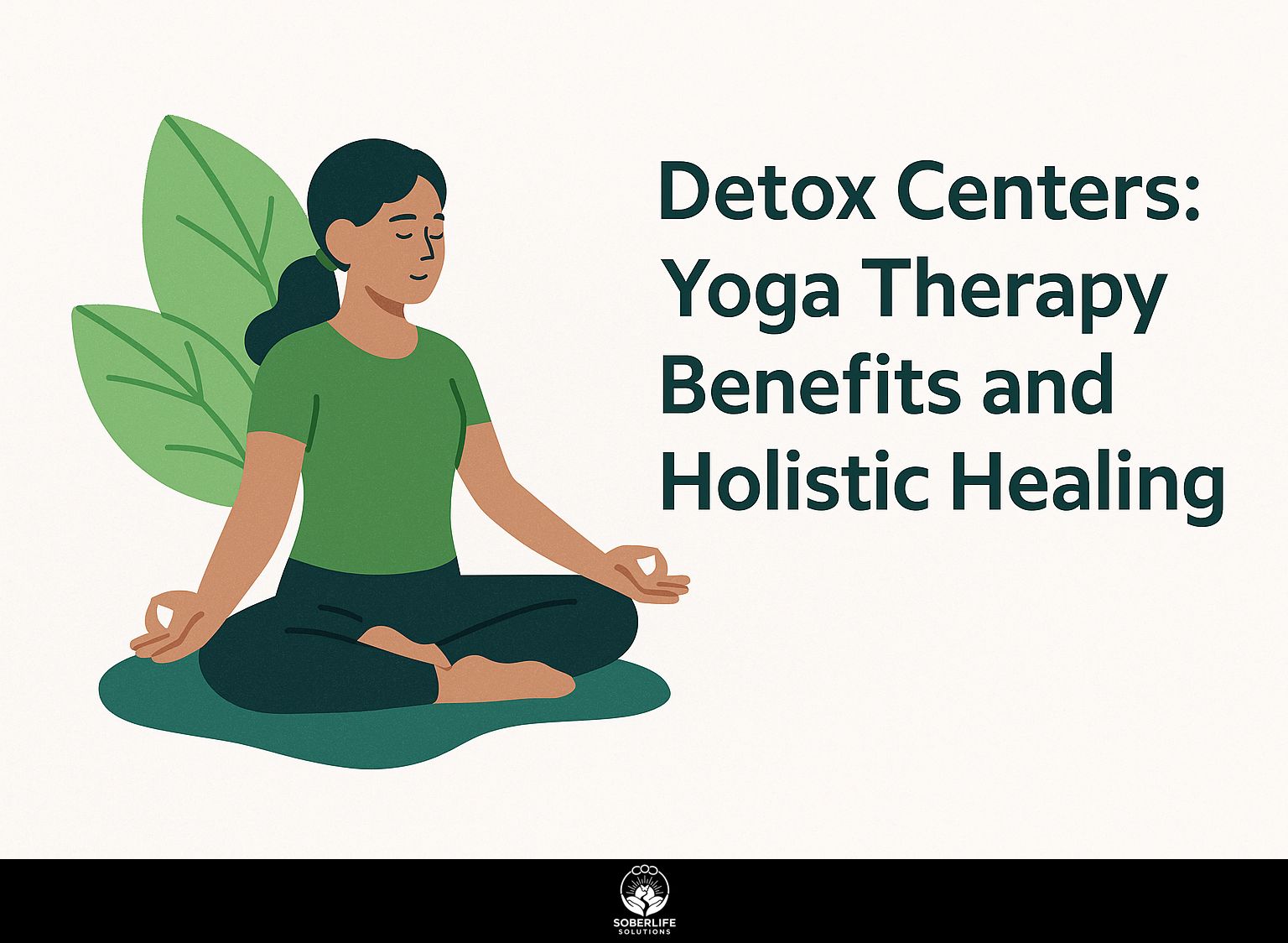
Detox centers like Evoke Wellness in Massachusetts are changing addiction treatment by including yoga therapy in their approach. This treatment, based on research, works alongside cognitive-behavioral therapy to support complete healing. This article looks at the positive effects of yoga in cleansing the body. It shows how yoga improves physical health, mental balance, and personal growth. Learn how approaches that take all parts of your life into account can support your recovery.
Key Takeaways:
Definition and Purpose
Detox centers are specialized facilities that help individuals safely withdraw from addictive substances while laying the groundwork for long-term recovery.
These centers typically offer a range of services including medically supervised detoxification, counseling, and support groups.
Many centers use medication to help with opioid withdrawal and cognitive behavioral therapy to address deeper issues.
Research shows that individuals who complete a detox program have a 50% higher chance of staying sober for the long term. Joining aftercare programs greatly improves success rates by promoting responsibility and offering community support in the difficult early months of sobriety.
Overview of Holistic Healing
Holistic healing uses practices like mindfulness, yoga, and dietary guidance to support mental, physical, and spiritual health.
This method works well in addiction recovery because it deals with the emotional and mental problems at its root.
For instance, mindfulness practices like meditation can improve emotional regulation, helping individuals identify triggers without reacting impulsively.
Yoga improves physical strength and helps create a sense of inner peace, which can help manage stress.
Nutritional counseling focuses on nourishing the body, supporting overall well-being and reducing cravings.
Using these therapies helps build a supportive environment for long-term change, reflecting the ideas of complete healing. One of our most insightful case studies demonstrates this principle with real-world results.
The Role of Yoga Therapy in Detoxification
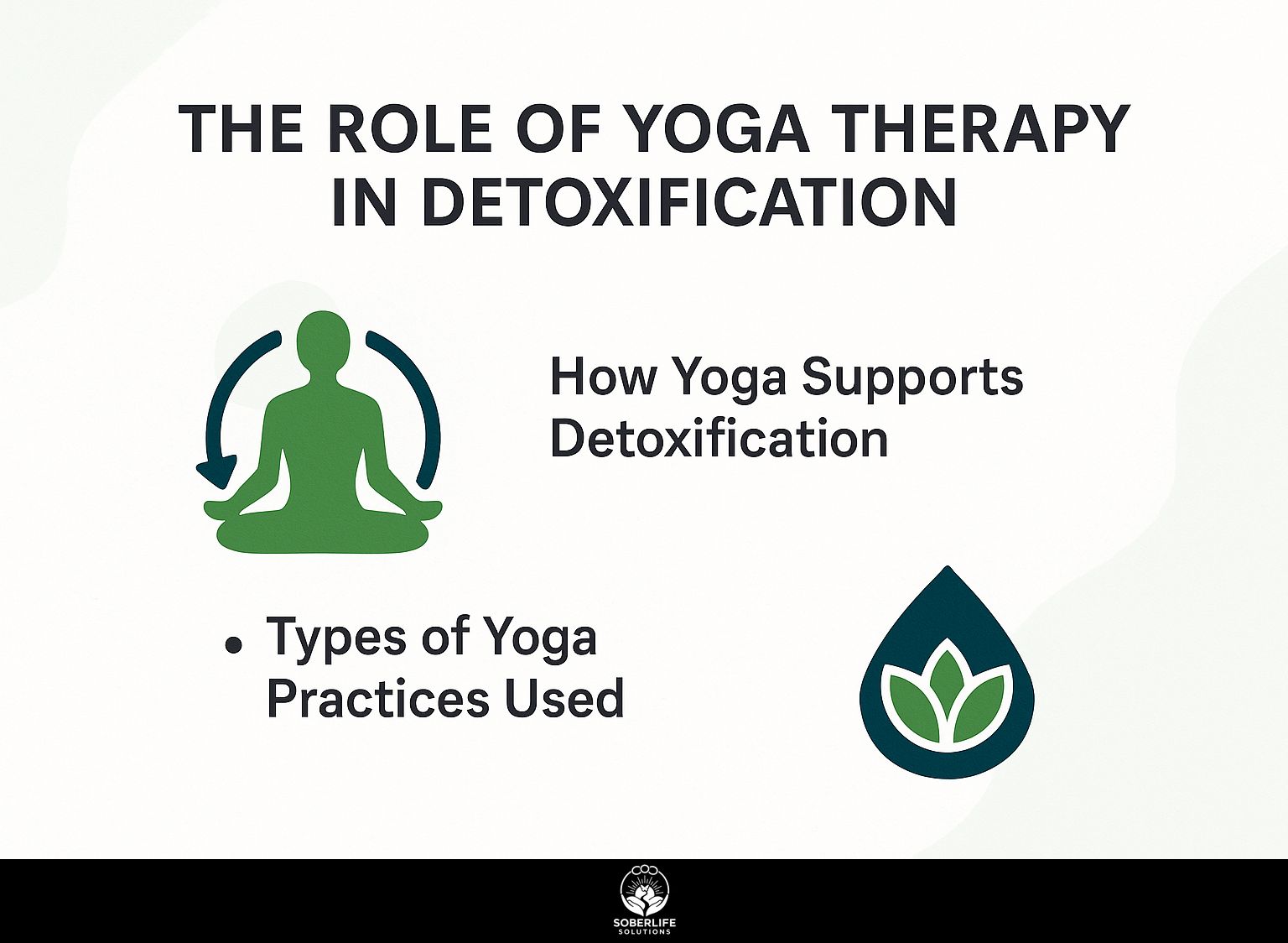
Yoga therapy is increasingly recognized as a useful way to cleanse the body and improve physical and emotional health through customized exercises. This approach aligns with evidence-based detox methods that emphasize holistic practices to achieve optimal health benefits.
How Yoga Supports Detoxification
Yoga helps remove toxins by strengthening the link between the mind and body, which is important for managing emotions during recovery.
Engaging in regular yoga practice can significantly reduce stress and anxiety levels, promoting relaxation and mental clarity. Techniques like deep breathing and mindful movements help lower cortisol, a stress hormone, which can otherwise impede detoxification.
For instance, studies show that individuals practicing yoga report a 30% decrease in anxiety symptoms after 8 weeks. This is supported by research from NYU Langone Health, which highlights the effectiveness of yoga in improving anxiety symptoms.
Including styles like Hatha or Yin yoga, which focus on slow movements and breath control, can improve recovery results by encouraging a more relaxed state of mind.
Types of Yoga Practices Used
Detox centers employ various forms of yoga, such as restorative yoga and therapeutic yoga, to cater to the specific needs of recovering individuals.
Restorative yoga focuses on relaxation and healing, utilizing props to support the body in gentle poses, which aids in stress reduction and promotes emotional balance.
Unlike general yoga, therapeutic yoga is customized to help with certain health issues, providing changes to support healing.
Breathwork methods, such as pranayama, improve oxygen circulation and encourage mindfulness. Mindfulness meditation develops focus on the present, aiding people in controlling urges and stress.
These practices can help recovery by supporting physical and mental health.
Benefits of Yoga Therapy in Detox Centers
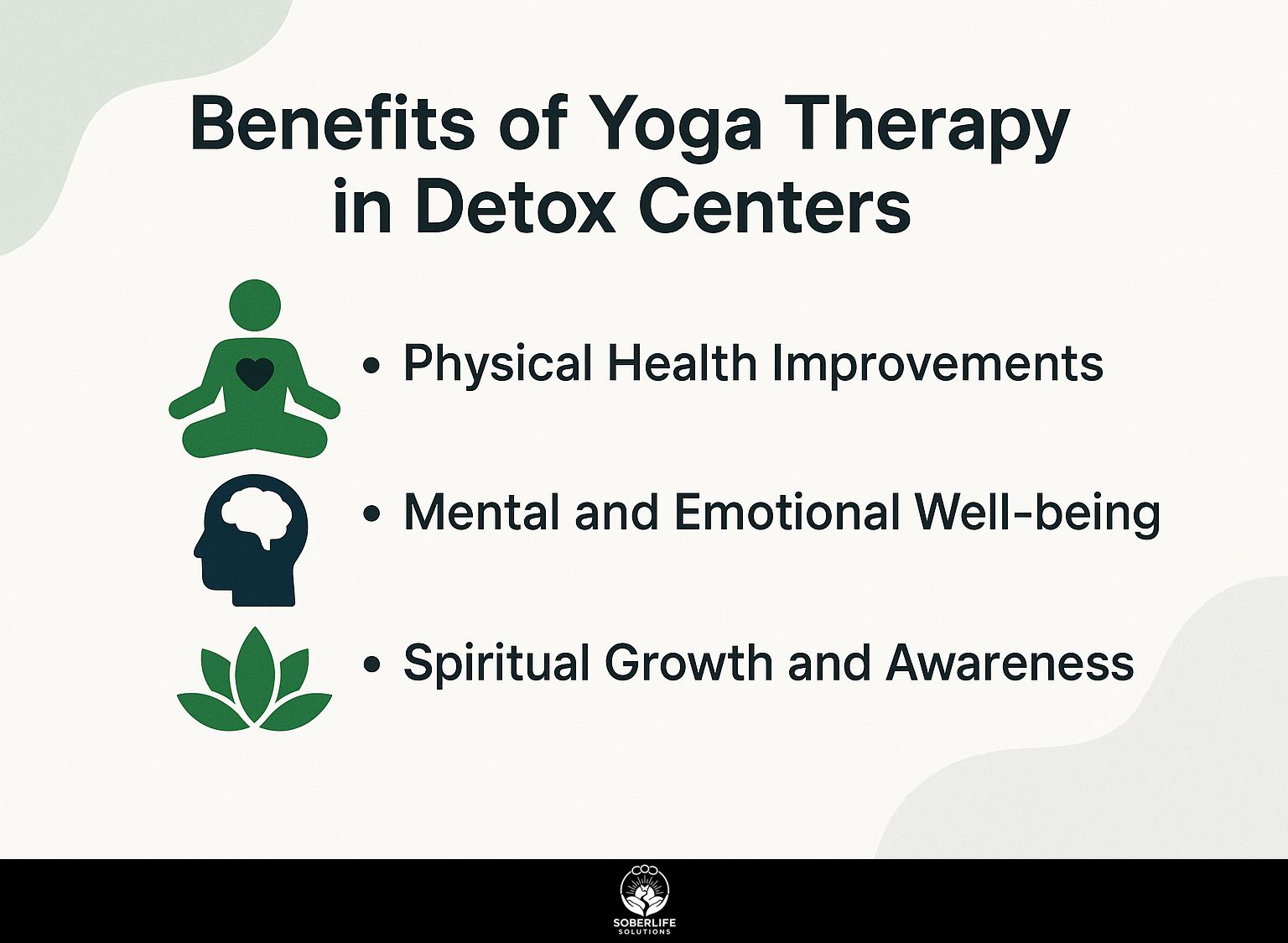
Yoga therapy offers many advantages to people in detox centers, including better physical health and improved mental and emotional wellness. To explore the diverse services and benefits available, you can refer to our detailed guide on detox center therapy options.
Physical Health Improvements
Regular practice of yoga has been shown to significantly improve physical health markers in individuals undergoing detoxification.
Research shows that yoga therapy during detox can help improve flexibility, leading to better movement. For example, a study published in the Journal of Substance Abuse Treatment found that participants reported a 30% improvement in flexibility after 8 weeks of yoga sessions. This aligns with findings from a recent article by Hopkins Medicine highlighting the benefits of yoga for overall wellness, which include enhanced flexibility and physical health.
Yoga can help mitigate withdrawal symptoms, as noted in a study in the Journal of Alternative and Complementary Medicine. Regular yoga practice has been linked to improved sleep quality. People have reported sleeping better by up to 40% after including yoga in their daily schedule.
Mental and Emotional Well-being
Yoga therapy contributes to mental and emotional well-being by promoting mindfulness and emotional balance during the detox process.
Using certain practices can greatly improve this process. Guided imagery, for example, allows individuals to visualize a peaceful and sober life, helping to reduce cravings.
Adding gratitude exercises to your daily activities can help you move focus from what you lack to what you value, encouraging a positive way of thinking. Daily sessions of 20 minutes, alternating between these techniques, can provide substantial emotional relief.
Using apps like Headspace for guided sessions can support this practice, ensuring consistency and effectiveness. These techniques can gradually build emotional strength, helping make recovery easier.
Spiritual Growth and Awareness
Participants in detox programs often experience significant spiritual growth and awareness through the integration of yoga therapy.
Yoga therapy offers a method to help people connect with themselves and those around them. For example, many detox centers offer daily classes that focus on breathing exercises and mindfulness, helping participants to become more aware of themselves.
Practices such as guided meditations during savasana help deepen introspection, while group yoga sessions promote a sense of community. Participants often write in journals while they do yoga, noting thoughts and emotions that come up.
This combination creates a supportive space where spiritual development is likely and often leads to significant change.
Holistic Approaches in Detoxification
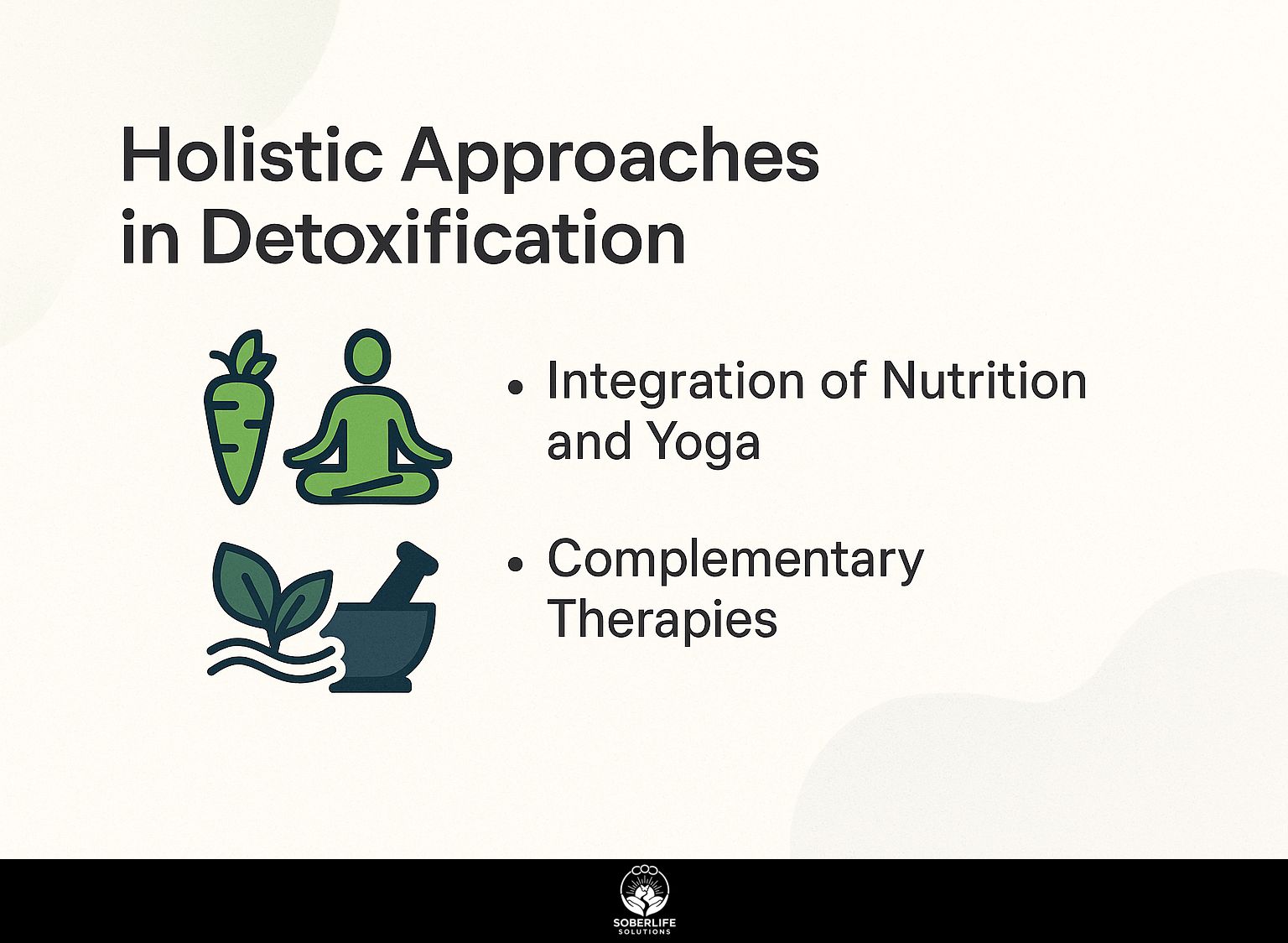
Detoxification focuses on using a combination of therapeutic methods like diet changes and alternative treatments to help improve health. Many detox centers offer a variety of therapy options that enhance these methods, providing benefits such as improved mental clarity and physical well-being. Learn more about the therapy options and their benefits to understand how they can complement holistic detox approaches.
Integration of Nutrition and Yoga
Mixing nutrition advice with yoga therapy can greatly improve healing and overall physical well-being.
Research shows that programs integrating nutrition and yoga have up to a 70% success rate in improving physical health outcomes.
Nutrition impacts detoxification by providing essential nutrients that support liver function, while yoga helps alleviate stress and promotes the release of toxins through breath and movement.
For maximum effectiveness, participants can engage in guided nutrition workshops focusing on whole foods, paired with regular yoga sessions emphasizing detoxifying poses, like twists and forward bends.
This method helps with detox and strengthens the connection between mind and body, increasing motivation.
Complementary Therapies
Complementary therapies, such as art therapies and breathing exercises, are essential parts of a complete detox program.
Art therapy offers people a way to express emotions through creativity, which can help let go of bottled-up feelings and lower anxiety. Participants often report breakthroughs when using mediums like painting or sculpting.
Similarly, breathwork techniques, such as the Wim Hof Method, promote relaxation and mindfulness, which can significantly lower stress levels during detox.
Sound healing uses tools like Tibetan singing bowls to create vibrations that help with emotional release and bring a strong feeling of peace.
These treatments create a caring space for emotional recovery, helping with the detox process.
Case Studies and Success Stories
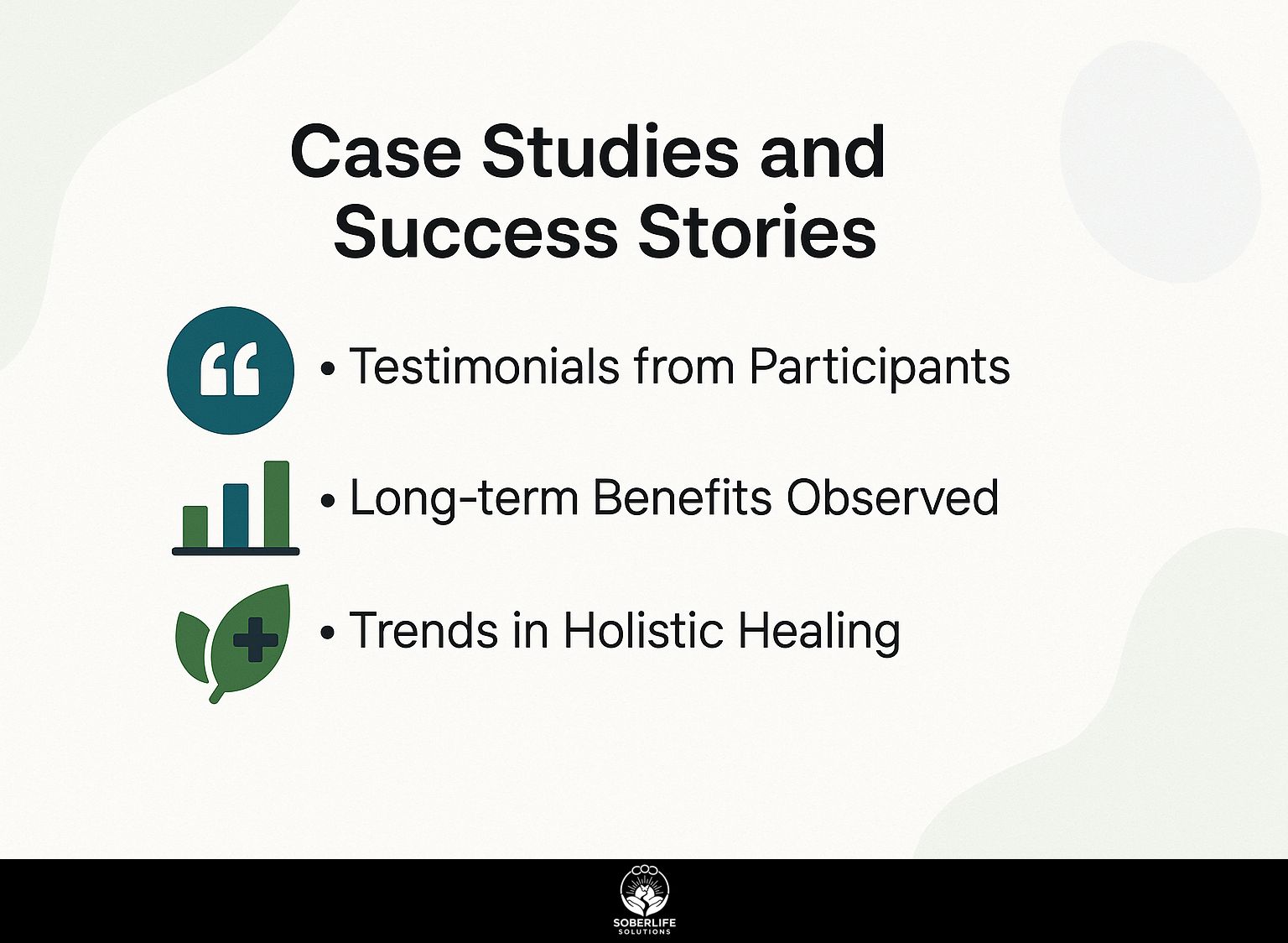
Real-life examples show that adding yoga and whole-person therapies to detox center programs works well. If interested, you might find our detailed article on spiritual and chiropractic services in detox centers enlightening, as it covers complementary therapies that significantly enhance recovery outcomes.
Testimonials from Participants
Feedback from people shows the strong effect of caring surroundings and kind staff in detox centers.
Many participants mention that group activities, like yoga and meditation sessions, help create a sense of community. A participant said that practicing yoga daily improved their focus and emotional control, which made therapy work better for them.
A survey done at a well-known detox center revealed that 90% of patients were happy with their experience, and 85% noticed big improvements in their mental health. These personal stories show how treatments that consider the whole person are important for improving recovery during detoxification.
Long-term Benefits Observed
The long-lasting advantages seen in participants show that complete treatments help with continuous healing and self-improvement.
Studies show that people using therapies like mindfulness meditation, yoga, and nutrition counseling have fewer relapses and improve their general health.
For instance, a study published in the Journal of Substance Abuse Treatment found that MBSR participants exhibited a 50% reduction in substance cravings over a year.
Yoga practitioners reported improved mental clarity and emotional regulation, contributing to a more stable lifestyle. By regularly participating in these therapies, people can build strength, lower stress, and develop better ways to handle challenges, improving their life over time.
Trends in Holistic Healing
New trends in complete healing highlight the importance of being aware and treating both mental health and substance issues in detox facilities.
These approaches integrate mental health support with traditional detox methods, recognizing the interconnectedness of mind and body.
For instance, facilities are incorporating meditation and yoga sessions alongside therapy. New treatments such as horse therapy and art therapy are becoming popular, providing ways to express emotions creatively. According to experts from the American Psychological Association, integrating innovative practices is crucial in tackling substance use, including the use of art and horse therapy as effective treatments (recommended reading).
Detox programs use these methods together to more effectively deal with problems related to addiction, helping people recover in the long term. This complete model improves treatment results and helps people create better ways to handle stress.
Frequently Asked Questions
What are the benefits of incorporating yoga therapy in a detox center?
Yoga therapy can help people in a detox center by lowering stress and anxiety, enhancing physical and mental health, and encouraging self-awareness and self-care.
How does yoga therapy help in complete healing at a detox center?
Yoga therapy focuses on the mind, body, and spirit, and can help individuals in a detox center to reconnect with their bodies and emotions, release negative energy, and heal from past trauma or addiction.
Can anyone participate in yoga therapy at a detox center, regardless of their physical abilities?
Yes, yoga therapy can be changed to suit people with different physical abilities. Trained instructors can modify poses and movements to suit each individual’s needs and abilities.
Are there any scientific studies that support the use of yoga therapy in a detox center?
Yes, many studies have shown that yoga therapy can help people in a detox center by lowering cravings, improving mood, and reducing stress hormones.
What other healing methods are usually available at a detox center besides yoga therapy?
In addition to yoga therapy, detox centers may also offer meditation, acupuncture, nutrition counseling, massage therapy, and other alternative healing methods. These practices can work together to promote overall wellness and healing.
Is yoga therapy covered by insurance at a detox center?
In many cases, yes. Coverage for yoga therapy and other healing practices may vary based on the detox center and your insurance plan. It is best to check with the center and your insurance provider to understand the coverage and potential costs.

